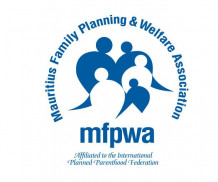

| 31 March 2016
Family Planning Association of Nepal
Established in 1959, the Family Planning Association of Nepal (FPAN) first joined IPPF in 1960 and become a full Member Association in 1969. When it was established, the idea of family planning was considered inimical to religious, cultural and social norms. With the institution of a government Maternal and Child Health Division in 1969, FPAN began to supplement and complement the national health and population programmes. Target populations include injecting drug users (IDUs), lesbian, gay, bi-sexual, trans-sexual and intersex (LGBTI) individuals, people living with HIV (PLHIV), survivors of gender-based violence (GBV) and trafficked returnees and refugees. FPAN serves these populations through an extensive network of 2,750 service points, comprising 127 static clinics, 116 mobile facilities, 184 associated clinics, 543 other agencies, and over 2,000 community-based distributors/services (CBDs/CBSs). Key areas of emphasis include adolescents' sexual and reproductive health, HIV and AIDS prevention and treatment, safe abortion, advocacy for sexual and reproductive health and rights (SRHR), the prevention of gender-based violence (GBV) and support for its victims, and the promotion of access to sexual and reproductive health (SRH) information and services to marginalized and under-served groups. With the dedicated backing of 450 full-time professional staff, 1000 community counsellors, 4000 peer educators and 11,000 grassroots volunteers, FPAN has the capacity to mobilize on a large scale, and with the support of over 20 governmental departments, non-governmental organizations (NGOs) and foundations, it has a secure funding base to maintain and expand its comprehensive programme of activities. Contacts Website: www.fpan.org

| 31 March 2016
Mauritius Family Planning & Welfare Association
Set up in 1957, the Mauritius Family Planning & Welfare Association (MFPWA) was one of the earliest organizations in Africa focusing on family planning issues. As the nation struggled to find a way to address pressing population issues, a group of advocates formed MFPWA and started to provide services directly to women. Today, the organization caters to the sexual and reproductive health (SRH) needs of the whole community. It also has particular strands of activity relating to specific groups including sexually abused children, elderly people and marginalized populations on Rodrigues Island. Through 2 permanent facilities, and a private sector-supported daycare centre, MFPWA’s 15 staff and 550 volunteers deliver services including family planning, the prevention and management of HIV and AIDS through voluntary counselling and testing (VCT), support for people living with HIV/AIDS, infertility management, antenatal and post-natal care, post-abortion care, the diagnosis and treatment of sexually transmitted infections (STIs) and screening for cancers of the reproductive systems. The Member Association also operates peer-educator-led outreach programmes targeting hotels, export processing zones and popular tourist hot spots. MFPWA has played a critical role in promoting the integration of family life education into the national school curriculum and its powerful, informed advocacy has been influential in shaping government legislation on SRH, particularly in relation to HIV and AIDS. MFPWA partners with and advises government departments which address health, quality of life, women’s rights, child development, family welfare, social security and youth and sports. MFPWA works with a large number of non-governmental organizations (NGOs) including the Mauritius Council of Social Service, the Mauritius Alliance of Women, PILS (People living with AIDS), SOS Pauvrete, the National Women’s Council, the Senior Citizen Council and Link. Donors include the Indian Ocean Commission and UNFPA. Website: http://mauritiusfamilyplanning.com







